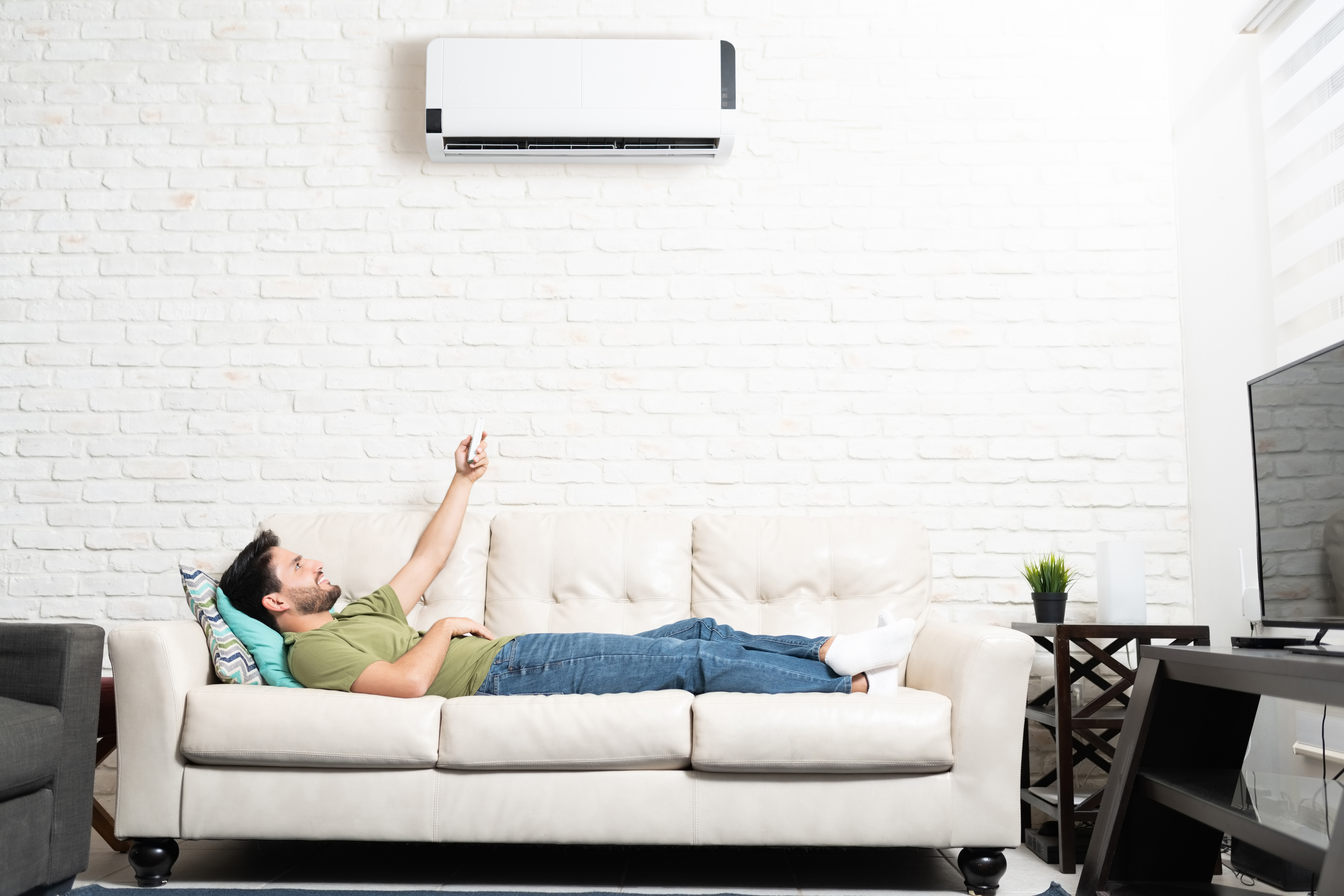Save up to 30% on your heating and cooling costs with a heat pump.
Heat pumps have been widely used in homes around the country and Michigan for years, providing an energy-efficient and affordable way for people to cool or heat their homes. In fact, the early, most basic heat pump technology has been around since the 1850s. Even if you haven’t heard of a heat pump, rest assured someone you know has and may even use one in their home.
HEAT PUMP 101
- What is a heat pump?
- A heat pump utilized technology that can be used to cool AND heat your home. During the summer, it runs like a regular AC system. Instead of burning propane or natural gas during the winter, a heat pump moves heat from outside to inside to warm your home. Even when it’s cold outside, there is still heat energy to capture and move inside.
- Like your refrigerator, heat pumps use electricity to move heat from a cool space to a warm space, making the cool space cooler and the warm space warmer. Because they move heat rather than generate heat, heat pumps can provide equivalent space conditioning at as little as one-quarter of the cost of operating conventional heating or cooling appliances.
- Benefits of a heat pump:
- The systems are reliable with a system life of 15-20 years.
- They are 2-4x more efficient since the system is simply moving heat, rather than creating heat by burning fuel.
- Better for the environment with lower carbon emissions.
- Provide year-round comfort as they continually adjust airflow to meet your heating and cooling needs.
- Heat pump myths:
- Michigan weather is not ideal for heat pumps: Myth!
- Cold climate heat pumps are designed to operate down to 5 degrees Fahrenheit before they may need any assistance from an internal electric backup heating element.
- Heat pumps are expensive: Myth!
- While the equipment costs for heat pumps are slightly higher than traditional HVAC units, installing a heat pump only requires one system. Since you’ll only need to install one new system rather than replacing two, you may be able to save hundreds of dollars each year by switching.
- Michigan weather is not ideal for heat pumps: Myth!
- How can I learn more and incorporate a heat pump into my home?
- DTE makes it easy to find a contractor near you with our Energy Efficiency Directory. Select “Heat Pump Replacement” to find contractors that sell and install air source heat pumps.
- You may also qualify for up to a $1000 rebate for your new heat pump
- Download our Homeowner’s Guide to Heat Pumps
TYPES OF HEAT PUMPS
- Air Source Heat Pump
- Air source heat pumps use electricity to transfer energy between indoor and outdoor air. Because they move heat rather than generate heat, these systems consume far less electricity than electric furnaces, baseboard heaters, or space heaters.
- There are 3 types of air source heat pumps to consider for your home:
- Centrally ducted: used when ducts are already available throughout the home
- Multi-head ductless mini-split: typically installed when there is no existing ducting or if the homeowner wants zoned control of individual rooms
- Single-head ductless mini-split: often installed when trying to heat and cool a specific area of the home, such as add-on rooms, that weren’t ducted
- Geothermal Heat Pump
- Also known as a Ground Source heat pump, these use the constant temperature of the earth as the exchange medium instead of the outside air temperature, providing a clean, reliable, and renewable source of energy.
- Advantages:
- They can be used in any climate, hot or cold
- Customers have several options to choose from depending on climate, soil conditions, available land, and local installation costs
- They have a long lifespan, some doubling or tripling the life of a traditional HVAC system
- They are very energy efficient and reduce carbon emissions
- Ductless Mini-Split
- Ductless, mini-split system heat pumps (mini splits) make good add-ons to houses with “non-ducted” heating systems. They can also be a good choice for room additions and very efficient new homes that require only a small space conditioning system.
- Advantages:
- Small size and flexibility for zoning or heating/cooling individual rooms
- Easy installation and energy-efficient options
- No ducts required, so maintenance and energy loss through poorly functioning ductwork is avoided
